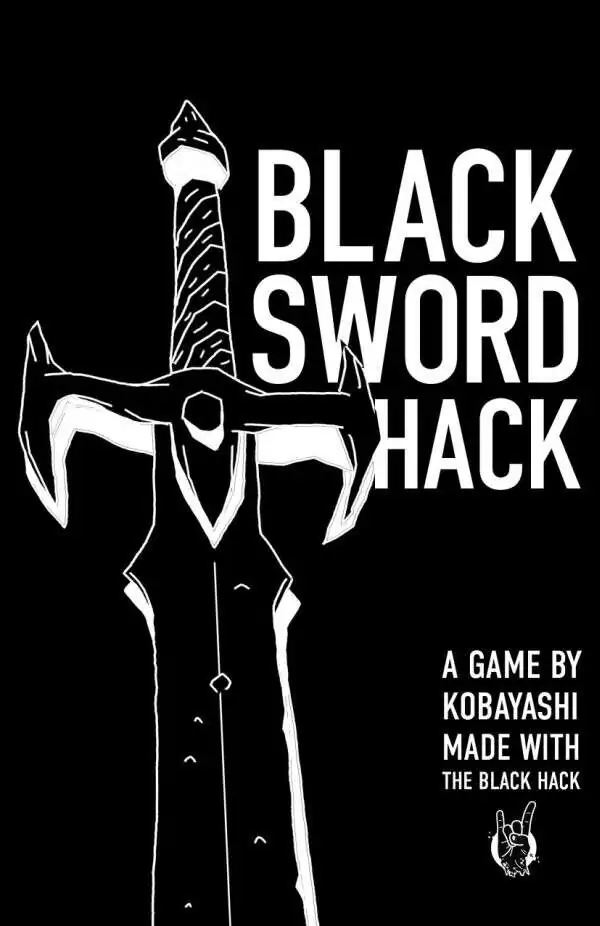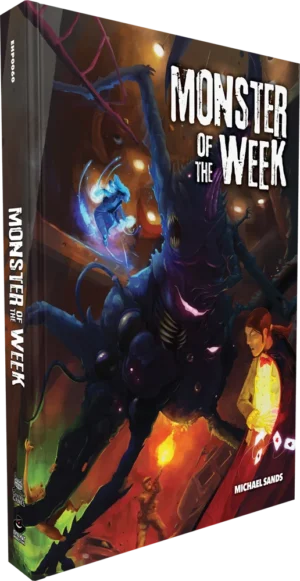The Black Sword Hack Dark Fantasy; Bleak; Old-School Renaissance (OSR); Tactical Combat; Character Customization; Exploration-Driven; Collaborative Worldbuilding
The Black Sword Hack (BSH) is a rules-lite, Old-School Renaissance (OSR) tabletop roleplaying game emphasizing dark fantasy themes, tactical combat, and exploration-driven gameplay. It distinguishes itself through its Doom mechanic, collaborative worldbuilding, and inspiration from authors like Michael Moorcock and Robert E. Howard. Designed for players seeking a bleak, challenging experience, BSH offers significant character customization and GM empowerment in a system prioritizing player agency and emergent storytelling.
Theme and Setting
Black Sword Hack plunges players into a dark fantasy world rife with war, decadence, and the looming threat of Chaos. The game explicitly draws inspiration from the works of Michael Moorcock, Fritz Leiber, Karl Edward Wagner, Robert E Howard, and Jack Vance. The setting is not pre-defined; instead, the game master (GM) collaboratively designs the world with the players, utilizing procedures and random tables within the core rules to spark originality. This collaborative approach allows for the creation of a unique and personalized setting, emphasizing player agency and shared storytelling. Six forms of 'magic' can be incorporated, including runic weapons, spirit alliances and twisted science.
Core Mechanics and Rules
BSH uses a rules-lite system derived from the Black Hack, emphasizing straightforward mechanics easily modified or ignored. The core mechanic involves rolling under a relevant ability score on a d20. A key feature is the Doom mechanic, which introduces an escalating risk of misfortune or character demise. Players make 'Doom Rolls' in specific circumstances, and manage a 'Doom Die' which decreases in size, with the character becoming disadvantaged until they reset Doom with a long rest. Character creation eschews traditional classes in favor of backgrounds (barbarian, civilized, decadent), promoting unique character concepts. Advantage/Disadvantage is implemented, however the GM has discretion to choose the result, adding to the sense of doom present within the game.
What Makes It Unique
Several elements set BSH apart. Firstly, its emphasis on collaborative worldbuilding empowers both the GM and players to shape the game's setting. Secondly, the Doom mechanic adds a layer of tension and risk, influencing player decision-making. The game's focus on backgrounds rather than rigid classes allows for greater character customization. The inclusion of tables for rune weapons and science gadgets gives the game master many options for antagonists and world building.
Target Audience and Player Experience
BSH caters to players seeking a dark, challenging, and tactical roleplaying experience. The game's lethality, combined with its focus on player agency, is geared towards those who appreciate the high-stakes gameplay characteristic of the OSR style. The player experience is one of exploration, risk-taking, and collaborative storytelling. The setting generation rules are designed to inspire GM's to make a unique world that is tailored to their tastes. The straightforward rules make it accessible to newcomers while offering enough depth to satisfy experienced players.



